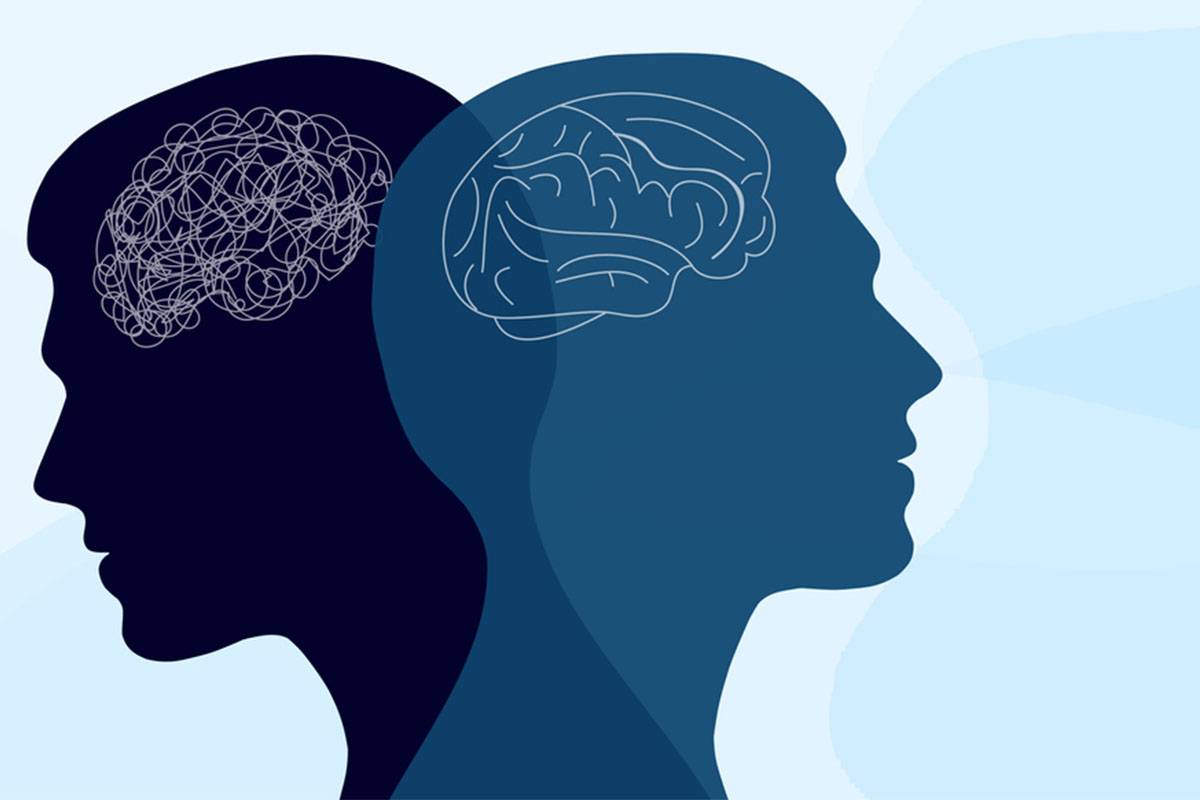In our complex and interconnected world, the study of human behavior has become crucial. These insights help us better understand consumer behaviors, public health trends, and even voting patterns.
Nearly all of these instances push us to ask the question: Why do people make the choices they do? Applied psychology is key to unlocking the answer to this question and transforming our understanding of the human experience.
What Is Applied Psychology?
Applied psychology is the practical application of psychological principles and theories from other types of psychology to address real-world challenges.
Some of these psychology fields include:
- Clinical psychology: A specialty within the field of psychology that is geared more toward populations with diagnosable mental disorders and serious psychopathologies.
- Counseling psychology: A general practice within the broader field of psychology that focuses on how patients function—both individually and in their relationships with family, friends, work, and the broader community.
- Forensic psychology: A specialty in professional psychology characterized by activities primarily intended to provide professional psychological expertise within the judicial and legal systems.
- Health psychology: A branch within the psychology field that focuses on how social, psychological, and biological factors combine to influence human health.
- Industrial-organizational psychology: The study and assessment of individual, group, and organizational dynamics within the workplace.
Social psychology: The study of the mind and behavior of people, considering personality traits, interpersonal relationships, and group behaviors.
“Applied psychology is really taking some of the basic research that’s done in those fields of psychology and applying it,” says Christie Rizzo, Associate Professor of Applied Psychology at Northeastern’s Bouvé College of Health Sciences. “That’s where the term comes from.”
As a result, this multifaceted field extends its influence into nearly every aspect of our lives. Professionals leveraging applied psychology use their expertise to help individuals, organizations, and communities via assessments, interventions, and strategies to promote positive outcomes and better quality of life.
While applied psychology touches on several specialities within psychology, it’s important to note the key differences between this field of study and others.
Basic Psychology vs. Applied Psychology
Basic psychology—also known as academic psychology—studies the fundamental principles, theories, and concepts of human behavior. According to Rizzo, it’s centered around conducting research, designing experiments, and generating theories to uncover why humans behave the way they do.
Applied psychology is different in that it focuses on applying that research. “The main difference is really thinking about how the research, concepts, and tools from basic psychology should be applied,” Rizzo says.
This often takes the form of prevention, which is an important aspect of applied psychology. By using basic psychology research to design and implement interventions, you can mitigate various health and social issues.
“Prevention science is an application of psychology that designs and tests interventions that promote mental health and reduces the risk of problem behaviors,” Rizzo says.
4 Reasons Why Applied Psychology Is Important
Whether it’s preventing substance abuse, reducing the risk of mental health disorders, or addressing behavioral problems in children, applied psychology offers evidence-based strategies that empower individuals and communities to lead healthier, more fulfilling lives.
Here are a few reasons why applied psychology has become increasingly important.
1. Improves Mental Health Outcomes
Mental health has garnered increased attention within the psychology field due to growing recognition of its significance and relevance. According to the Centers for Disease Control and Prevention, the percentage of adults who received mental health treatment increased from 19 percent in 2019 to 22 percent in 2021.
Through applied psychology, mental health professionals can employ scientific principles to understand and address the root causes of mental health issues—with an emphasis on early intervention and risk reduction. This work is essential because it offers a proactive, evidence-based approach to reducing mental health problems and combating the societal challenges that can cause them.
The emergence of technology is a huge part of this prevention initiative as well.
“Using technology can move applied psychology forward because that’s where everybody’s communicating,” Rizzo says. “And that’s where folks are looking for resources. So we need to be able to take advantage of that.”
In the case of applied psychology, this can mean leveraging social media campaigns or even phone applications focused on improving mental health. With behavioral data, applied psychology can help inform these campaigns to ensure they resonate with those who statistically suffer from mental health issues.
2. Enhances Child Welfare
While mental health is incredibly important, ensuring the welfare of children is another important issue that applied psychology aims to address. In 2021, there were at least 588,229 child victims of abuse or neglect, but child welfare professionals try to leverage psychological methods to avoid these tragedies.
Child welfare professionals are pivotal in developing and applying intervention programs that prioritize the safety and well-being of children. They often work in collaboration with state and federal government agencies to ensure programs are compliant with the highest standards of ethics, efficacy, and child protection.
Much like mental health challenges, addressing a child’s welfare requires applied psychology prevention techniques to proactively avoid societal and environmental factors that negatively affect a child’s well-being.
Some examples of what applied psychology aims to prevent include:
- Child abuse and neglect
- Educational challenges
- Behavioral disorders
“Examples include programs that prevent drug use in adolescents, reform educational practices, and support families managing the stress of family violence,” Rizzo says.
Social media plays a huge role in moving these applied psychology initiatives forward. Before, psychologists focused on prevention work through face-to-face contact. In today’s digitally connected world, there’s untapped potential to leverage data from large communities and still be able to reach them outside of personal contact.
“We can harness social media for good,” Rizzo says. “Young people can seek out other individuals with similar identities to their own and create a social support system online.”
3. Prevents Substance Abuse
Substance abuse affects millions of Americans. In fact, 20.4 million people in the United States were diagnosed with a substance abuse disorder in 2019 alone.
Applied psychology is critical in the treatment and prevention of substance abuse. This is achieved through early intervention services and screenings that aim to better the individual, their relationships, and communities affected by substance abuse. By understanding risk factors and protective factors at both the individual and environmental levels, professionals can implement targeted interventions to address potential issues before they escalate.
While early intervention of substance abuse is important, addiction is a chronic and relapsing condition. Therefore community-based interventions, another element of applied psychology, are another necessary aspect of substance abuse treatment to ensure individuals don’t face long-term health consequences or legal issues.
This can involve:
- Community organizing
- Policy advocacy
- Development of support networks
Applied psychology does not just play a role in these programs execution, it also ensures substance abuse counselors and other professionals are able to evaluate and determine the efficacy of a community program.
“We’re so grateful when we have programs aimed at preventing substance abuse in the community,” Rizzo says. “But it’s difficult when those programs have never been evaluated for being useful. That’s why applied psychology trains professionals to effectively evaluate these programs.”
4. Work Performance
While work performance does not necessarily affect peoples’ well-being, there is still work that needs to be done to improve business performance and employee satisfaction in the workplace.
In fact, in the first half of 2022, productivity plunged by the sharpest rate on record going back to 1947 according to the Washington Post.
Applied psychology plays a vital role in improving an organization’s operations through psychological principles and research methods aimed at enhancing employee performance. By prioritizing the well-being of employees and applying evidence-based psychological principles, organizations can create a positive work environment conducive to productivity, resulting in long-term success and sustainability.
Take the First Step Toward a Career in Applied Psychology
While applied psychology is a relatively new field, it touches on established psychology methods and theories, making it the best educational route for those still searching for alternative career paths in psychology.
If you’re interested in studying applied psychology, Northeastern’s MS in Applied Psychology is a dynamic, forward-thinking program designed to cater to the professional aspirations of students who want a career beyond traditional psychology roles. It’s also a great program to gain exposure to a graduate-level curriculum to help students work toward their doctorate or refine their professional goals with the guidance of experienced faculty advisors.




